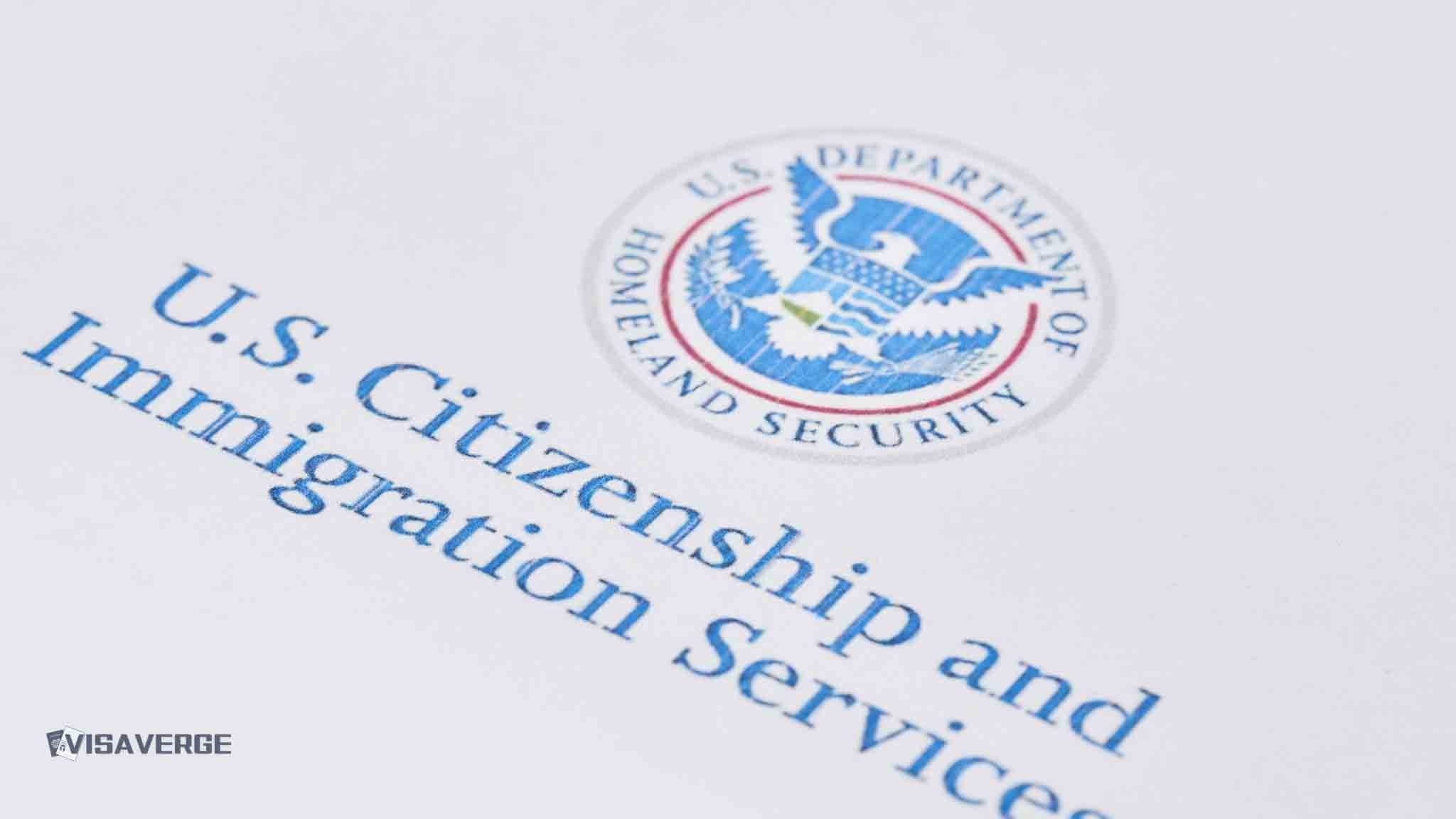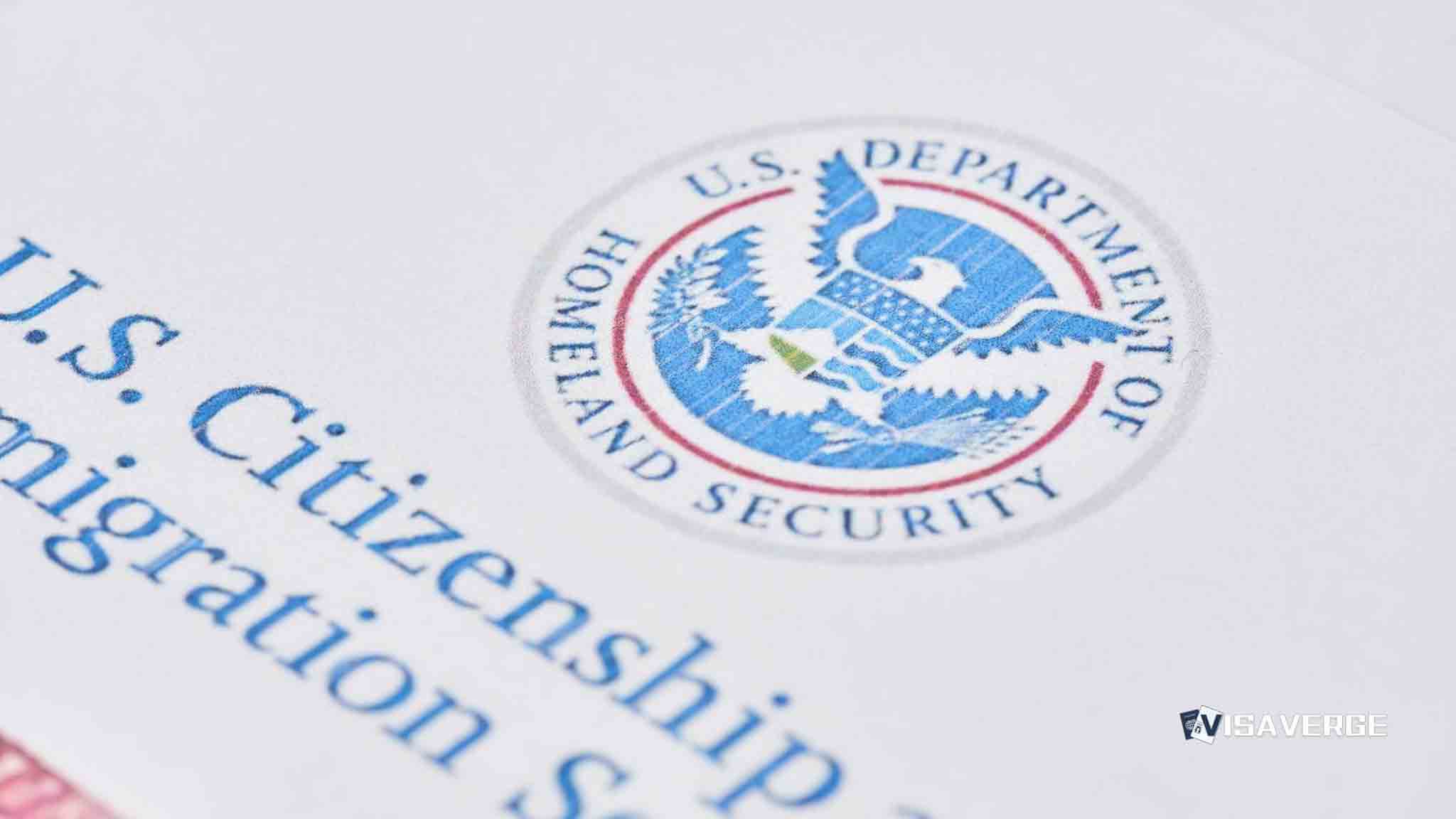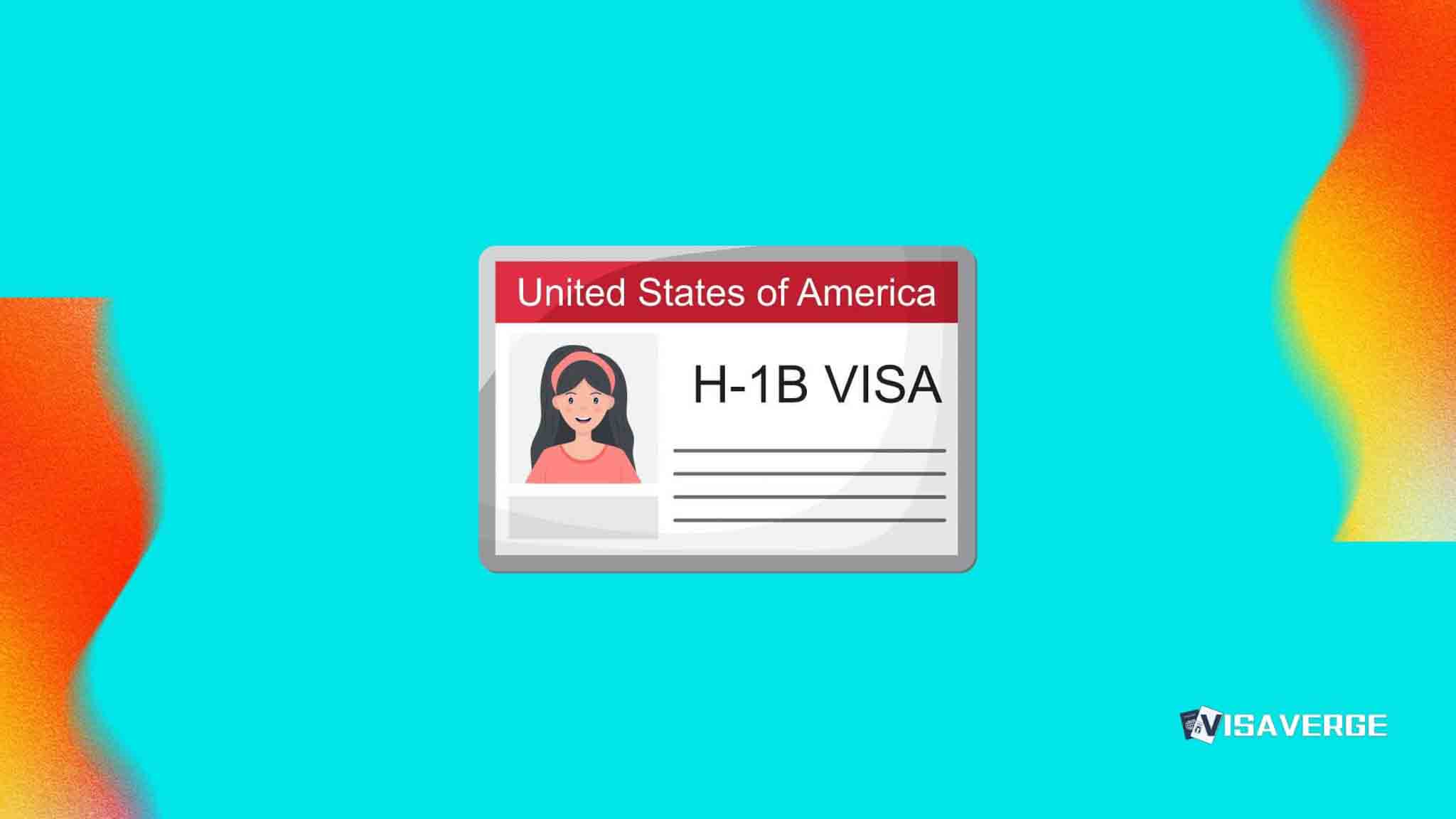Key Takeaways
• The EB-2 NIW lets applicants apply without a job offer or labor certification if their work benefits the U.S.
• USCIS updated NIW rules on January 15, 2025, emphasizing strong evidence and national importance of the work.
• Applicants must meet advanced degree or exceptional ability criteria plus prove their work advances U.S. national interests.
The EB-2 National Interest Waiver (NIW) is a unique and important pathway for people who want to become permanent residents of the United States 🇺🇸. Unlike many other employment-based green card categories, the EB-2 NIW lets certain applicants skip the usual job offer and labor certification requirements. This means you can apply on your own, without needing an employer to sponsor you. Over the years, the United States 🇺🇸 government has updated the rules and guidance for this process, making it important for applicants to stay informed about the latest eligibility criteria and procedures.
This guide explains the EB-2 National Interest Waiver in simple terms. It covers who can apply, what you need to qualify, how the process works, and what recent changes from U.S. Citizenship and Immigration Services (USCIS) mean for applicants. You’ll also find practical tips, real-world examples, and links to official resources to help you get started.

What Is the EB-2 National Interest Waiver?
The EB-2 National Interest Waiver is a part of the second preference employment-based (EB-2) green card category. Normally, EB-2 green cards are for people with advanced degrees or exceptional ability in their field. The NIW is a special option within this category. It allows you to ask the U.S. government to “waive” the usual requirement for a job offer and labor certification if you can show that your work will benefit the country as a whole.
In simple terms, if you have special skills or education and your work is important to the United States 🇺🇸, you might be able to get a green card through the EB-2 NIW without needing a company to sponsor you.
Who Can Apply? Understanding the Eligibility Criteria
To qualify for an EB-2 National Interest Waiver, you must meet two main sets of requirements:
- You must qualify for the basic EB-2 category (either as an advanced degree professional or as someone with exceptional ability).
- You must show that your work is in the national interest of the United States 🇺🇸.
Let’s break down each part.
1. Basic EB-2 Requirements
A. Advanced Degree Professionals
You qualify under this part if:
- You have a U.S. master’s degree or higher (or a foreign degree that is the same as a U.S. master’s or higher).
- OR you have a U.S. bachelor’s degree (or foreign equivalent) plus at least five years of progressive work experience in your field.
Progressive work experience means your responsibilities and skills have grown over time.
B. Exceptional Ability
If you don’t have an advanced degree, you can still qualify if you have “exceptional ability” in the sciences, arts, or business. Exceptional ability means you have a level of skill and recognition that is much higher than most people in your field.
To prove exceptional ability, you must meet at least three of these criteria:
- Official academic records showing you have a degree, diploma, or certificate related to your field
- Letters from current or former employers showing at least ten years of full-time experience in your field
- A license or certification to practice your profession
- Evidence that you have earned a high salary or other pay for your work, showing your exceptional ability
- Membership in professional associations
- Recognition for your achievements and significant contributions to your field by peers, government, or professional organizations
- Other comparable evidence, if the above do not apply
Note: You only need to meet one of the two basic EB-2 requirements (advanced degree or exceptional ability), not both.
2. National Interest Waiver Requirements
Even if you qualify for the EB-2 category, you must also show that your work is so important that the United States 🇺🇸 should let you skip the usual job offer and labor certification steps. This is called the “national interest waiver.”
USCIS uses a three-part test to decide if you qualify for the NIW:
A. The Proposed Endeavor Has Substantial Merit and National Importance
- Your work must have value and benefit the United States 🇺🇸 as a whole.
- It should address important national needs, such as public health, education, science, technology, economic growth, or national security.
- Examples: Developing new medical treatments, working on clean energy projects, or helping solve major economic problems.
B. You Are Well Positioned to Advance the Proposed Endeavor
- You must show you have the skills, experience, and record of success needed to carry out your work.
- Evidence can include your education, work history, awards, publications, letters of support from experts, and a clear plan for your work in the United States 🇺🇸.
C. On Balance, It Would Benefit the United States 🇺🇸 to Waive the Job Offer and Labor Certification
- USCIS will weigh the benefits of your work against the usual requirement for a job offer and labor certification.
- If your work is important enough, and you are well positioned to do it, USCIS may decide it’s better for the country to let you apply directly.
USCIS Guidance Update: What’s New in 2025?
On January 15, 2025, USCIS released an important update to its guidance for EB-2 National Interest Waiver petitions. This update clarified several key points:
- Applicants must clearly show they meet the advanced degree or exceptional ability requirement.
- Exceptional ability must be directly related to the proposed work in the United States 🇺🇸.
- The work must have national importance, not just local or regional value.
- Strong evidence is needed to support claims, including detailed business plans and letters of support.
According to analysis from VisaVerge.com, these updates mean that applicants should focus on showing how their skills and work will help the country as a whole, not just a single company or community.
The Application Process: Step-by-Step
Applying for an EB-2 National Interest Waiver involves several steps. Here’s a simple overview:
1. Gather Your Evidence
Collect documents that prove:
- Your education and degrees
- Your work experience and achievements
- Your exceptional ability (if applying under that category)
- The national importance of your work
- Letters of support from experts in your field
- A detailed plan for your work in the United States 🇺🇸
2. Complete Form I-140
You must file Form I-140, Immigrant Petition for Alien Worker with USCIS. This is the main form for EB-2 NIW petitions. You can file this form yourself; you do not need an employer to file it for you.
3. Submit Your Petition to USCIS
Send your completed Form I-140 and all supporting documents to the correct USCIS address. Be sure to include the required filing fee. Check the official USCIS I-140 page for the most up-to-date fee and mailing instructions.
4. Wait for USCIS Review
USCIS will review your petition and may ask for more information if needed. They will look closely at your eligibility, your evidence, and whether your work meets the national interest standard.
5. Adjustment of Status or Consular Processing
If your I-140 is approved and a visa number is available, you can apply for a green card. If you are already in the United States 🇺🇸, you may file Form I-485, Application to Register Permanent Residence or Adjust Status. If you are outside the United States 🇺🇸, you will go through consular processing at a U.S. embassy or consulate.
What Evidence Should You Provide?
Strong evidence is the key to a successful EB-2 NIW petition. Here are some examples of what you can include:
- Academic records: Diplomas, transcripts, certificates
- Work experience letters: From current and former employers
- Professional licenses or certifications
- Awards and honors: Proof of recognition in your field
- Published work: Articles, books, patents, or presentations
- Letters of support: From experts, professional organizations, or government agencies
- Business plans: If you are starting a new project or company
- Proof of national impact: Data, reports, or news articles showing the importance of your work
The more detailed and specific your evidence, the better your chances of approval.
Real-World Examples
To help you understand how the EB-2 National Interest Waiver works in practice, here are a few examples:
Example 1: Medical Researcher
Dr. Lee is a scientist with a Ph.D. in biology. She has developed a new treatment for a rare disease. Her work has been published in top medical journals, and she has received awards from professional organizations. Dr. Lee applies for an EB-2 NIW, showing that her research could save lives and reduce healthcare costs in the United States 🇺🇸. She provides letters from leading doctors and a detailed research plan. USCIS approves her petition because her work has national importance and she is well positioned to continue her research.
Example 2: Renewable Energy Engineer
Mr. Patel is an engineer with a master’s degree in environmental engineering. He has worked for over ten years on solar energy projects that help reduce carbon emissions. He wants to start a company in the United States 🇺🇸 to develop new solar technology. Mr. Patel submits evidence of his patents, awards, and a business plan showing how his work will create jobs and help the environment. He also includes letters from government agencies supporting his project. USCIS grants his NIW because his work addresses a national priority—clean energy.
Example 3: Business Professional with Exceptional Ability
Ms. Garcia does not have a master’s degree, but she has over fifteen years of experience in international trade and has helped many U.S. companies expand overseas. She provides evidence of her high salary, awards, and membership in professional associations. Ms. Garcia’s business plan shows how her work will increase U.S. exports and create jobs. USCIS approves her NIW based on her exceptional ability and the national benefit of her work.
Practical Implications for Applicants
The EB-2 National Interest Waiver offers several advantages:
- No job offer required: You can apply on your own, without needing an employer to sponsor you.
- No labor certification: You do not have to go through the lengthy and complex labor certification process.
- Faster processing: In some cases, the process can be quicker than other employment-based green card categories.
- Flexibility: You can work for any employer or start your own business in the United States 🇺🇸.
However, the process is also demanding. You must provide strong evidence and make a clear case for why your work is important to the country. The recent USCIS Guidance Update means that officers will look closely at how your skills and work match the national interest.
Comparing EB-2 NIW to Other Green Card Options
It’s helpful to see how the EB-2 NIW compares to other employment-based green card categories:
| Category | Job Offer Needed? | Labor Certification Needed? | Who Can Apply? |
|---|---|---|---|
| EB-1A (Extraordinary Ability) | No | No | People with top achievements in their field |
| EB-2 (Standard) | Yes | Yes | Advanced degree or exceptional ability |
| EB-2 NIW | No | No | Advanced degree or exceptional ability + national interest |
| EB-3 | Yes | Yes | Skilled workers, professionals, other workers |
The EB-2 NIW is a good choice if you have strong qualifications and your work benefits the United States 🇺🇸 as a whole, but you do not have a job offer.
Rights and Pathways After Approval
If your EB-2 NIW petition is approved and you become a permanent resident (green card holder), you gain many rights:
- Live and work anywhere in the United States 🇺🇸
- Start your own business or work for any employer
- Travel in and out of the country (with some restrictions)
- Apply for U.S. citizenship after meeting residency requirements
You can also include your spouse and unmarried children under 21 in your green card application.
Staying Updated: Official Resources
Immigration rules and policies can change. It’s important to check official sources for the latest information. The USCIS website provides up-to-date details on EB-2 National Interest Waiver eligibility criteria, forms, and procedures.
Final Tips and Next Steps
- Review the eligibility criteria carefully before applying.
- Gather strong evidence that shows your education, experience, and the national importance of your work.
- Use official forms and instructions from the USCIS website.
- Consider consulting an immigration attorney if you have questions or need help preparing your petition.
- Stay informed about USCIS Guidance Updates and any changes to the rules.
The EB-2 National Interest Waiver is a valuable option for people who want to contribute to the United States 🇺🇸 and build a future here. By understanding the requirements and preparing a strong application, you can improve your chances of success.
For more detailed analysis and updates on the EB-2 NIW process, VisaVerge.com reports that staying informed about the latest USCIS guidance is key for all applicants.
If you’re ready to begin, start by reviewing the official USCIS EB-2 NIW page and downloading Form I-140 to begin your journey.
Learn Today
EB-2 National Interest Waiver → A green card category allowing applicants to skip job offers if their work benefits U.S. national interests.
Labor Certification → A process that verifies no qualified U.S. workers are available for the job offered to a foreign national.
Exceptional Ability → A high level of skill and recognition significantly above average in sciences, arts, or business fields.
Form I-140 → USCIS form for immigrant worker petitions, required to apply for an EB-2 NIW green card.
USCIS Guidance Update → Official changes in USCIS policies clarifying eligibility and evidence requirements for EB-2 NIW petitions.
This Article in a Nutshell
The EB-2 National Interest Waiver offers qualified professionals a faster green card option by waiving employer sponsorship and labor certification, focusing on work that benefits the entire United States, with recent USCIS updates requiring clear proof of eligibility and national impact.
— By VisaVerge.com













